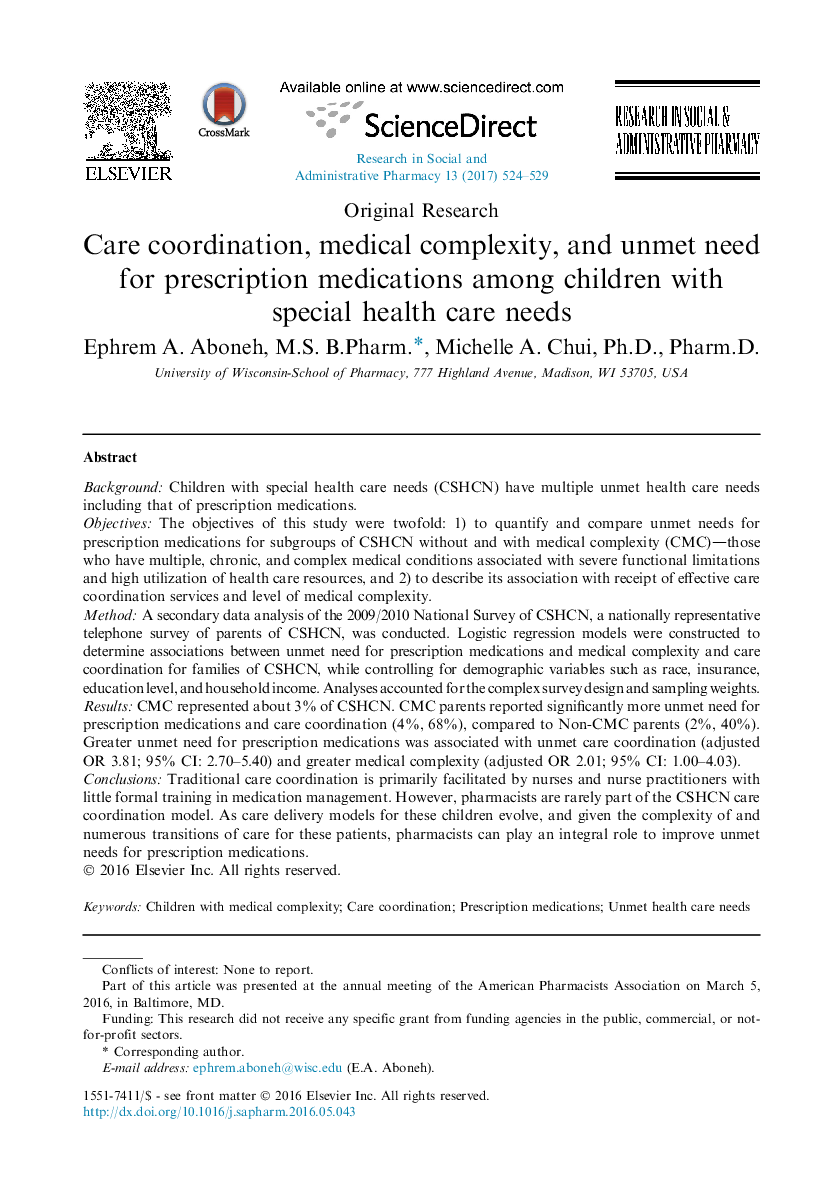| کد مقاله | کد نشریه | سال انتشار | مقاله انگلیسی | نسخه تمام متن |
|---|---|---|---|---|
| 5551314 | 1402944 | 2017 | 6 صفحه PDF | دانلود رایگان |
BackgroundChildren with special health care needs (CSHCN) have multiple unmet health care needs including that of prescription medications.ObjectivesThe objectives of this study were twofold: 1) to quantify and compare unmet needs for prescription medications for subgroups of CSHCN without and with medical complexity (CMC)-those who have multiple, chronic, and complex medical conditions associated with severe functional limitations and high utilization of health care resources, and 2) to describe its association with receipt of effective care coordination services and level of medical complexity.MethodA secondary data analysis of the 2009/2010 National Survey of CSHCN, a nationally representative telephone survey of parents of CSHCN, was conducted. Logistic regression models were constructed to determine associations between unmet need for prescription medications and medical complexity and care coordination for families of CSHCN, while controlling for demographic variables such as race, insurance, education level, and household income. Analyses accounted for the complex survey design and sampling weights.ResultsCMC represented about 3% of CSHCN. CMC parents reported significantly more unmet need for prescription medications and care coordination (4%, 68%), compared to Non-CMC parents (2%, 40%). Greater unmet need for prescription medications was associated with unmet care coordination (adjusted OR 3.81; 95% CI: 2.70-5.40) and greater medical complexity (adjusted OR 2.01; 95% CI: 1.00-4.03).ConclusionsTraditional care coordination is primarily facilitated by nurses and nurse practitioners with little formal training in medication management. However, pharmacists are rarely part of the CSHCN care coordination model. As care delivery models for these children evolve, and given the complexity of and numerous transitions of care for these patients, pharmacists can play an integral role to improve unmet needs for prescription medications.
Journal: Research in Social and Administrative Pharmacy - Volume 13, Issue 3, MayâJune 2017, Pages 524-529
